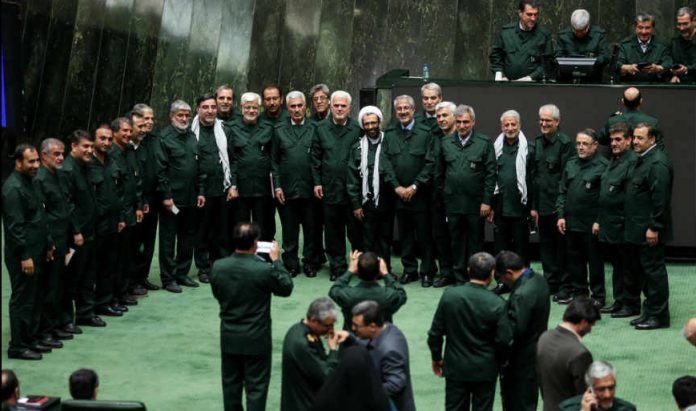By Kayhan Life Staff
The Majlis (Iranian Parliament) is preparing to debate a proposal on depriving hijab violators of social services, Mousa Ghazanfarabadi, the chair of the Majlis’ Judicial and Legal Commission, has said.
In comments reported by the Tehran-based Entekhab newspaper on Feb. 3, Mr. Ghazanfarabadi said: “We have resumed enforcing the ‘monitoring plan’ by sending warning text messages to the cellphones of hijab violators. We have another plan for identifying and penalizing people who breach mandatory hijab, which could cause losing their social services.”
“A first-time violator will receive a text warning, informing them they will be fined if they commit the same offense,” Ghazanfarabadi explained. “The proposal calls for blocking the person’s national identity card until they pay the fines. They cannot use banking and other services.”
“It is yet unclear which Majlis commission will have the final say on this proposal,” Ghazanfarabadi noted. “Initially, it is reviewed by the Judiciary and Legal Commission. The main thrust of the proposal is the need to observe Islamic principles, including hijab.”
Iran to Resume Cellphone Warning to Hijab Violators, Police Spokesperson Says
“We are determined to discuss and pass this proposal,” Ghazanfarabadi said. “The proposal is in its preliminary stage, and before it becomes law, we must develop it further and get an expert opinion on its specifics.”
“The bill to use seatbelts in cars faced no opposition, so we do not expect to encounter any problems regarding this proposal,” Ghazanfarabadi argued. “We must enforce it once it becomes law.”
“I must stress that the law will not be physically enforced,” Ghazanfarabadi added. “As the esteemed leader of the Revolution [Supreme LeaderAyatollah Ali Khamenei] has said, hijab violators are also our children. I must emphasize that enforcing this law will not contradict his comments.
Iran’s 2023-24 Budget Earmarks Massive Funds for Religious Institutions
The renewed crackdown on alleged violators of the hijab law follows months of intense national protest sparked by the death of Mahsa (Zhina) Amini, a 22-year-old woman who died in the custody of the morality police on Sept. 16 in Tehran. The police alleged that Ms. Amini had breached the hijab law. The ongoing unrest has morphed into a revolutionary movement calling for regime change in Iran.
Despite international condemnation of the brutal crackdown on protesters, the Islamic Republic regime, and the hardline government of President Raisi, have doubled down on their efforts to restrict women’s civil rights and freedom. They are reverting to heavy-handed tactics used by the “Revolutionary Committees” and Islamic fundamentalists in 1980 to enforce a restrictive dress code and punish hijab violators.
Since coming to office, Mr. Raisi’s government has ordered the police to enforce mandatory hijab aggressively, promoted child marriages, banned female spectators from football matches, and withheld all legal, psychological, and financial support from domestic abuse and rape victims.
In an interview with the semi-official Fars news agency on Jan. 8, Mehdi Hajian, the spokesperson for the Law Enforcement Command of the Islamic Republic of Iran (FARAJA), said Iran was to resume the “monitoring plan 1,” initially rolled out in 2020, by which police send warning text messages to alleged hijab violators’ mobile phones.
“As we had said previously, police operate within the law. Police enforce laws ratified by lawmakers,” Hajian said. “We believe that observing hijab is a legal and religious issue. The law has been passed and will be reaffirmed by higher institutions which will respond to all questions.”
“All text messages will be processed through the ‘monitoring plan 1’ website, which was previously active and is back in operation again,” Hajian explained. “Police are duty-bound to enforce this law in line with Article 638 of the Islamic Republic Penal Code.”
“Under Article 638, observing the religious hijab is mandatory. Failure to uphold this law is an offense,” he added. “Higher institutions must decide how to proceed with its implementation.”
Iran’s Supreme Leader Admits Detaining Tens of Thousands of Protesters – IRNA
A day earlier, the commander of FARAJA, Brigadier General Ahmad Reza Radan, removed Brigadier General Hossein Rahimi as Tehran’s police chief, replacing him with Brigadier General Abbasali Mohammadian. General Mohammadian was the former police chief of the northern province of Alborz and the head of Tehran’s detective bureau.
Mr. Mohammadi called on “concerned citizens in Greater Tehran” to be vigilant and report hijab violations, inappropriate behavior in vehicles, and actions threatening the “sanctity of the family institution,” Tasnim said. Haj-Mohammadi urged citizens to report any “immoral behavior,” including dancing and serving and consuming alcohol in cars, restaurants, cafes, and other public places.
He called on the public to report incidents of “moral corruption,” including parties and prostitution, by calling the telephone number 09054309484 or sending texts to domestic messaging apps Bale, Soroush, Eitan, and others, Tasnim’s report added.
Soroush is owned by the Islamic Republic of Iran Broadcasting (IRIB).
On July 6, 2019, the head of Tehran’s “Prosecutor’s Office for Guidance,” Mohammad Mehdi Haji-Mohammadi, said his office had launched an official channel (@dadresa_ershad), available on various messaging platforms, including Telegram, where “concerned citizens” could report any incidents involving “immoral behavior” and violations of the mandatory hijab.
In comments reported by the Tehran-based Tasnim news agency, Mr. Haj-Mohammadi said: “The measure provides a platform for concerned citizens to report any moral indiscretion and hijab violations.”
A year later, the deputy commander of the Law Enforcement Forces, Brigadier General Ghasem Rezaei, unveiled “Monitoring Plans 1 and 2” to crack down on hijab breaches in cars, shops, and public venues.
Under the plans, “first-time offenders will receive a warning text on their mobile phones.” The Guidance Patrol (Morality Police) summons anyone who violates the mandatory hijab for the second time. They will be “required to sign a document, promising not to violate mandatory hijab.” Those breaking the law for the third time “will face legal proceedings.”


